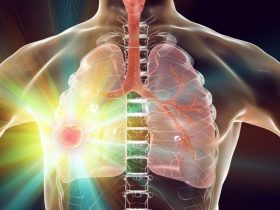Model relies only on age, smoking duration, and pack-years
By Lori Solomon HealthDay Reporter
TUESDAY, Oct. 3, 2023 (HealthDay News) — A machine learning model that uses only data on age, smoking duration, and pack-years can predict lung cancer risk and identify who needs lung cancer screening with better performance than currently used methods, according to a study published online Oct. 3 in PLOS Medicine.
Thomas Callender, Ph.D., from University College London, and colleagues developed and validated ensemble machine learning models to determine eligibility for risk-based lung cancer screening. The model was developed using data from 216,714 ever-smokers participating in the U.K. Biobank prospective cohort and 26,616 high-risk ever-smokers participating in the U.S. National Lung Screening randomized controlled trial. Validation used data from 49,593 participants in the chest radiography arm and all 80,659 ever-smoking participants in the U.S. Prostate, Lung, Colorectal, and Ovarian Screening Trial.
The researchers found that models predicting lung cancer death (UCL-D) and incidence (UCL-I) using three variables — age, smoking duration, and pack-years — achieved or exceeded parity in discrimination, overall performance, and net benefit versus comparators currently in use. In external validation, UCL-D had an area under the receiver operating characteristic curve (AUC) of 0.803 and was well calibrated with an expected/observed (E/O) ratio of 1.05. For UCL-I, the external validation had an AUC of 0.787 and an E/O ratio of 1.0. At five-year risk thresholds of 0.68 percent for UCL-D and 1.17 for UCL-I, the sensitivity was 85.5 and 83.9 percent, respectively, which was higher than the U.S. Preventive Services Task Force 2021 criteria at the same specificity.
“Risk assessment for lung cancer screening can be simplified without reducing performance, potentially improving the uptake and effectiveness of national lung cancer screening programs, and therefore contributing to reducing deaths from lung cancer,” the authors write.
Several authors disclosed ties to industry.
Copyright © 2023 HealthDay. All rights reserved.







